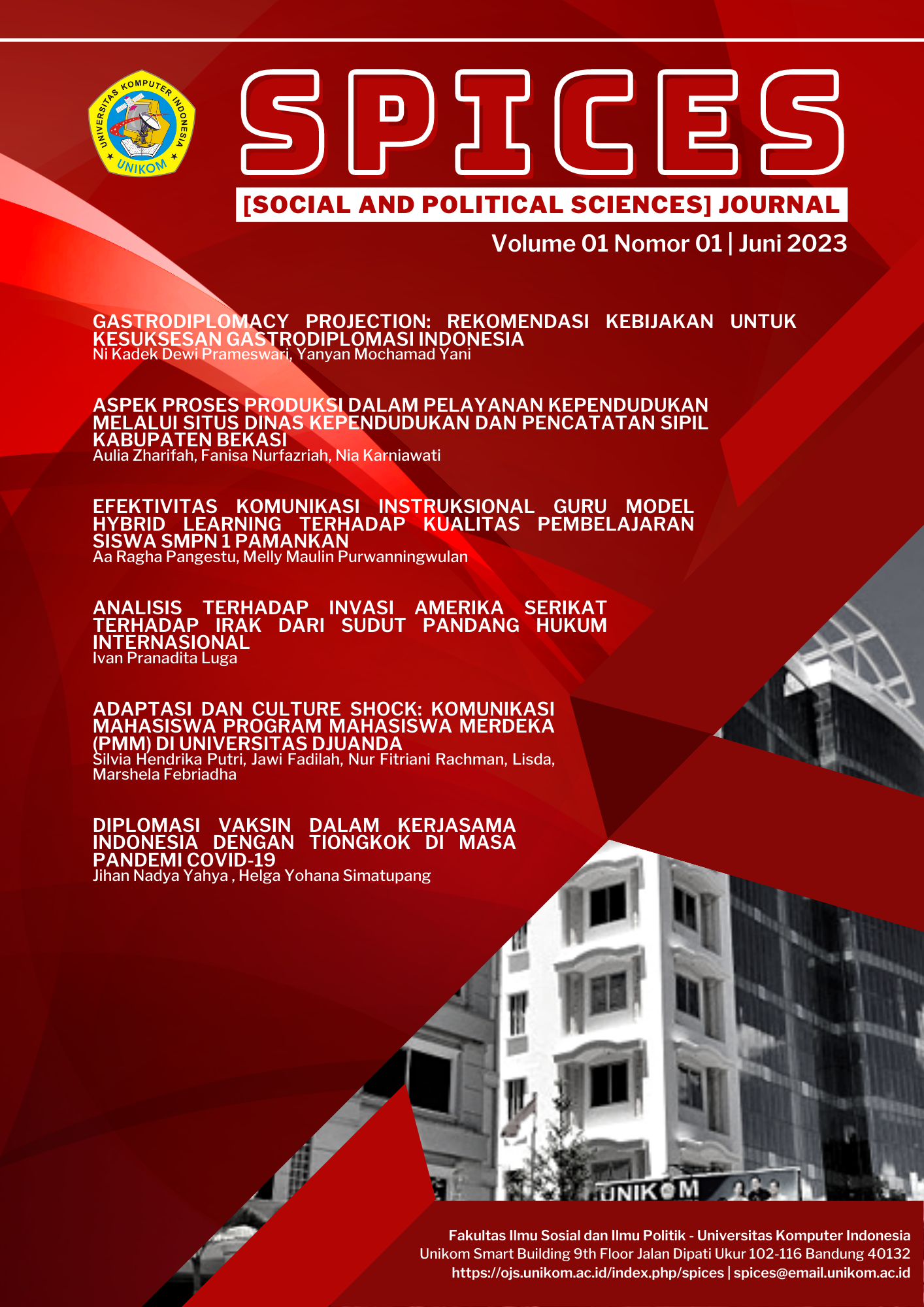EFEKTIVITAS KOMUNIKASI INSTRUKSIONAL GURU MODEL HYBRID LEARNING TERHADAP KUALITAS PEMBELAJARAN SISWA SMPN 1 PAMANUKAN
Keywords:
Instructional Communication, Hybrid Learning Model, Learning Quality, TeacherAbstract
This researchsis to determinezthe effect of instructional communication by teachers on hybrid learning on the quality of student learning at SMPN 1 Pamanukan Subang Regency. The sample used in this study was 100 students of SMPN 1 Pamanukan Subang Regency using a quantitative approach, stratified sampling technique. Analysis of this research data with linear regression analysis. The results of this study indicated that partially there is a significant influence between message content, channels, sources on the quality of learning of SMPN 1 Pamanukan students, while communication receivers and punctuality have no significant effect on learning quality of SMPN 1 Pamanukan students. simultaneously there is the influence of instructional communication on the quality of learning is 99.8% while the remaining 0.2% is explained by other reasons outside the model. In addition, there is a significant influence between teacher instructional communication hybrid learning model on teaching skills, student learning behavior, class climate, learning materials, learning media and learning Systems among students of SMPN 1 Pamanukan. The conclusion of this study, instructional communication has a positive role in implementing the hybrid learning model effectively. Teachers are suggested to maintain and improve their instructional communication skills so that the learning quality of SMPN 1 Pamanukan students can provide the best in themselves and maximize the learning potential of their students.


